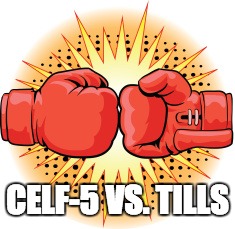
Shop, Share & Earn!
Introducing Our Smart Rewards Program!
Earn Smart Reward Points By:
1. Shopping On Our Website
2. Sharing Our Products On Social Media
3. Creating An Account On Our Website (Points Awarded on First Purchase)
4. Reviewing Our Products
5. Commenting on our Blog Posts
6. More Great Ways to Earn Rewards Points Are Coming Soon!
How Do I Redeem Smart Rewards Points?
Smart Reward Points Are Automatically Applied to your Shopping Cart During the Checkout!
How Do I Track My Smart Rewards Points Balance?
You can track your Smart Rewards balance by visiting My Account page.
Smart Rewards Points Program
| Register an account |
Earn 100 Smart Points (awarded on first purchase) |
| Purchase products |
Earn 100% of the product price in points |
| Review products |
Earn 10 Smart Points |
| Like our products on Social Media |
Earn 5 Smart Points for a Facebook Like or a Tweet |
| Share our products on Social Media |
Earn 10 Smart Points for a Facebook Share or Twitter Follow |
| Comment on our Blog Posts |
Earn 10 Smart Points |
Terms and Conditions
Eligibility
Smart Speech Therapy, LLC. reserves the right at its sole discretion to modify, suspend or cancel the Smart Rewards Program accounts, without notice for any conduct that we, in our sole discretion, believe is in violation of acceptable usage of our Rewards Program. We also reserve the right to revoke reward points if we feel the participant has tried to abuse the Rewards Program in any way. Smart Speech Therapy, LLC. reserves the right at its sole discretion to modify, suspend or cancel the Smart Rewards Program, without notice and at our discretion. Smart Rewards Points are redeemable only on this website and do not carry monetary value outside of this website.
Expiry
Smart Rewards Points expire after 365 days of inactivity.
[hupso_hide]
 On a daily basis I receive emails and messages from concerned parents and professionals, which read along these lines: “My child/student has been diagnosed with: dyslexia, ADHD, APD etc., s/he has been receiving speech, OT, vision, biofeedback, music therapies, etc. but nothing seems to be working.”
On a daily basis I receive emails and messages from concerned parents and professionals, which read along these lines: “My child/student has been diagnosed with: dyslexia, ADHD, APD etc., s/he has been receiving speech, OT, vision, biofeedback, music therapies, etc. but nothing seems to be working.”

 As a speech-language pathologist (SLP) working with school-age children, I frequently assess students whose language and literacy abilities adversely impact their academic functioning. For the parents of school-aged children with suspected language and literacy deficits as well as for the SLPs tasked with screening and evaluating them, the concept of ‘academic impact’ comes up on daily basis. In fact, not a day goes by when I do not see a variation of the following question: “Is there evidence of academic impact?”, being discussed in a variety of Facebook groups dedicated to speech pathology issues.
As a speech-language pathologist (SLP) working with school-age children, I frequently assess students whose language and literacy abilities adversely impact their academic functioning. For the parents of school-aged children with suspected language and literacy deficits as well as for the SLPs tasked with screening and evaluating them, the concept of ‘academic impact’ comes up on daily basis. In fact, not a day goes by when I do not see a variation of the following question: “Is there evidence of academic impact?”, being discussed in a variety of Facebook groups dedicated to speech pathology issues. 
 Three years ago I wrote a blog post entitled: “
Three years ago I wrote a blog post entitled: “

